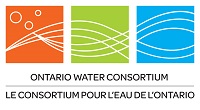The economic opportunity that lies beneath (your streets)
Municipal water and wastewater infrastructure keeps the families that live in Ontario’s cities, towns and municipalities safe. This same infrastructure allows businesses to operate, creating economic opportunity and employment, while it also protects the surrounding environment.
Two progressive municipalities in Southwestern Ontario have begun to view the operation of their wastewater infrastructure as an economic opportunity, creating a platform for innovation for companies with new ideas to reduce operating costs and improve wastewater treatment. And the opportunity is great; the global market size of the water industry is currently estimated to be US$360 billion and is forecasted to rise to US$1.6 trillion in 10 years.
Ground Breaking Technologies
Innovative companies in the water sector are developing groundbreaking technologies aimed at providing solutions to municipalities, industrial enterprises, and consumers. But these companies must be able to demonstrate to their customers that their technology works, outside of the lab, in the real world. There are significant costs in terms of the time and money needed to obtain land access, build infrastructure and work through environmental and other approvals for on the ground research, development and demonstration.
Working with municipal partners that include the City of London, City of Guelph, Region of Waterloo, City of Kitchener, City of Waterloo and the City of Cambridge the Southern Ontario Water Consortium (SOWC) is establishing Southern Ontario as a hub for water research development and demonstration.
“The partnership through SOWC is creating a ‘living lab’ in Southern Ontario, which is bringing researchers, municipalities and the private sector together to collaborate on solutions to challenges faced in Ontario and around the world” said Ed McBean, Canada Research Chair in Water Supply Security at the University of Guelph.
As SOWC partners, the City of Guelph and the City of London have opened their wastewater treatment plants to academic and private sector research, development and demonstration. Southwestern Ontario is a hub for water research and private sector activity and opening these facilities will help to attract even more companies to the region, creating economic growth and employment.
The Guelph Wastewater Facility will allow for testing of treatment technologies through five testing stations where users will have access to wastewater at different stages of treatment. The SOWC is investing $3 million in the facility which will be complemented by an ecotoxicology facility onsite and a state-of-the-art lab at the University of Guelph.
Economic Opportunity
Working in collaboration with Western University, the City of London recognizes the economic opportunity of attracting innovative companies to their community. In addition to making their wastewater facility available for research, the City is investing $3.8 million to complement the $4.7 million SOWC is spending to renovate the London Wastewater Facility which will provide users with access to municipal sewage streams at full scale flows. For the first time, companies will be able to access facilities to test their treatment technologies in a real environment, from pilot scale to full scale.
John Braam, Managing Director, Engineering and City Engineer for the City of London says “sustainability is at the heart of every decision that we make in London… it needs to be the best, newest technology with the best value for the long term. Working with SOWC we are creating a hub for water innovation that will benefit London and Southern Ontario.”
Research and demonstration projects such as those in the City of London and the City of Guelph will be sustainable if they create financial value for both the municipalities and business. That’s the model: turning a treatment plant into a demonstration facility will benefit companies through providing the capacity they need, and benefit municipalities through the growth of local companies and attraction on news ones, increasing the tax base and creating employment. Progressive cities recognize that supporting innovation will realize solutions they can use in the provision of municipal services, create economic growth, and increase the attractiveness of the region to this growing sector.
Now is the time to look at water infrastructure as more than simply a service offered in your municipality and look at the economic opportunities that can be found through new approaches to academic, public and private sector collaboration.

